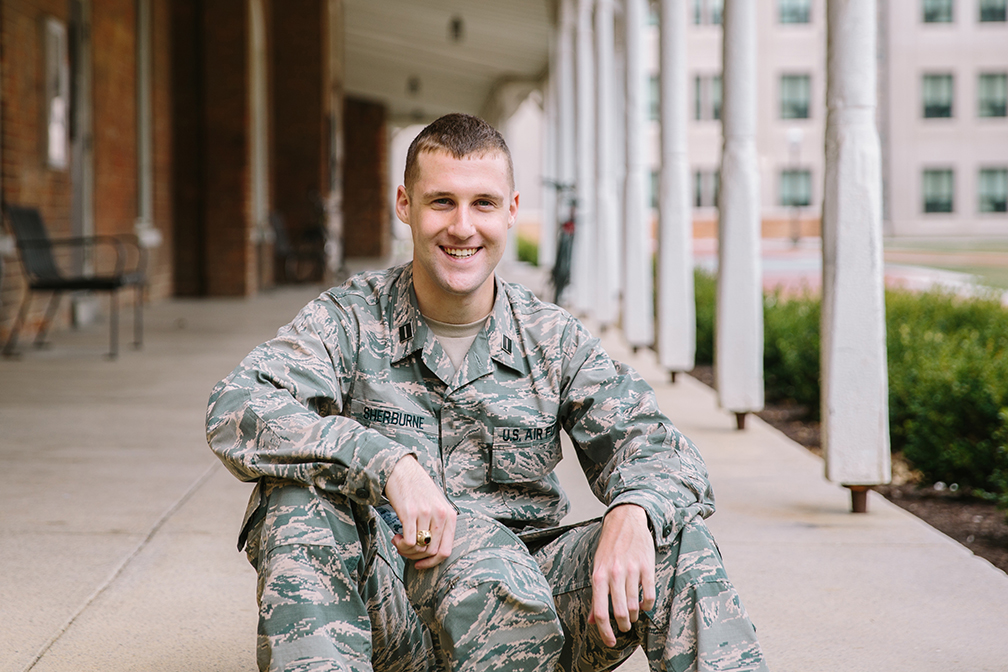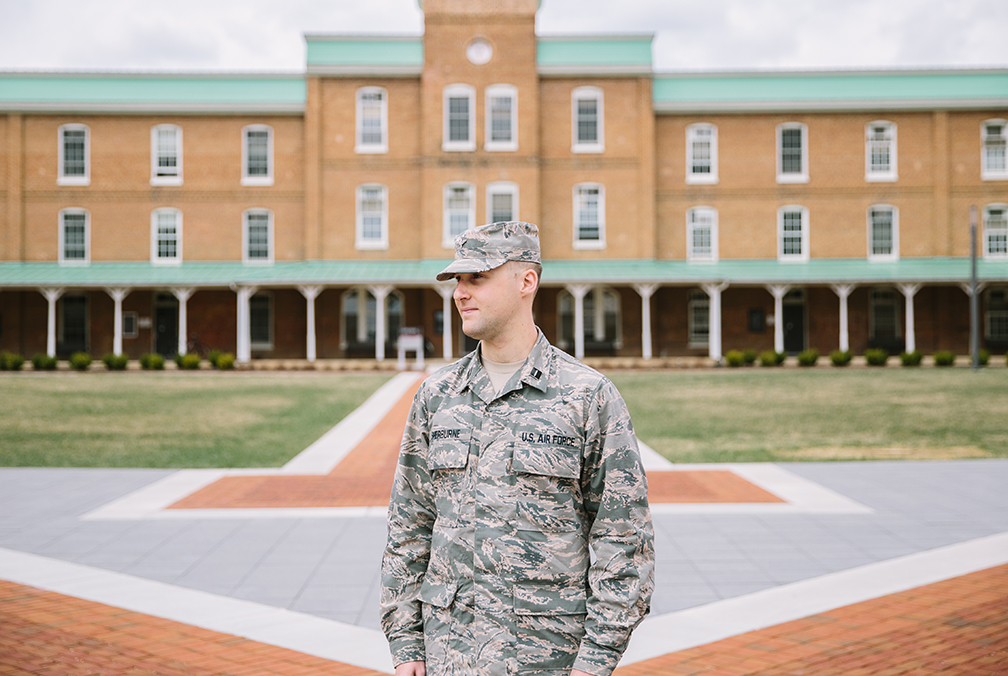Michael Sherburne Named Outstanding Senior for Engineering
May 2, 2018

Throughout his time at Virginia Tech, Michael Douglas Sherburne made it his mission to understand both the engineering he studies and the complex social issues that surround it.
Sherburne, of Burke, Virginia, is graduating with honors in electrical engineering from the Bradley Department of Electrical and Computer Engineering and the College of Engineering’s 2018 Outstanding Senior award.
As a student, researcher, and leader, Sherburne has been able to explore interests from space science to public policy while at Virginia Tech.
In Air Force ROTC, Sherburne serves as a squadron commander and is responsible for the training of about 30 cadets. In the Virginia Tech Corps of Cadets, Sherburne serves as a platoon leader and is responsible for the training and well-being of almost 40 cadets during his last semester in the corps.
For his senior capstone project, Sherburne, the lead electrical engineering student on the team, works on a dense plasma focus device for the nuclear engineering program based in mechanical engineering.
“We’re developing a new nuclear fusion tool to generate neutron radiation for experiments,” explained Sherburne, a William C. McAllister Leadership Scholarship recipient.
With Space@VT, Sherburne’s honors thesis project is based on designing a linear transformer driver that will power the next-generation Magnetized Shock Experiment at Los Alamos National Laboratory, New Mexico. The experiment advances the fundamental science of fusion plasma physics and engineering and develop a sustainable fusion energy source.
Sherburne is also the lead electrical engineering undergraduate researcher for Space@VT’s Plasma Diagnostic Laboratory, where he plays a key role in the creation of a fiber optic network.
“Michael has made critical contributions … while training undergraduate students and working with graduate students,” said Colin Adams, an assistant professor in the Kevin T. Crofton Department of Aerospace and Ocean Engineering, who praised Sherburne’s control systems work in the plasma accelerator experiment.
As a 21st Century Studies Fellow, Sherburne has been able to pursue a broader scope of work in addition to engineering aspects of scientific advancement. Sherburne led investigation into water quality issues within Sri Lanka, analyzing how cultural barriers can stymie local science efforts. His results were published and presented at the 8th International Perspective on Water Resources and the Environment conference, an organization under the American Society of Civil Engineers.
Tying together his interests in politics and science, Sherburne co-founded Students on Capitol Hill in 2014 to influence legislative bills affecting the space industry. As a result of these lobbying efforts, Sherburne obtained an internship in Congressman Robert Hurt’s (VA) Washington, D.C., office.
“The experience gave me some insight into how scientists and engineers can most effectively lobby their interests in a complex political environment,” said Sherburne.
Closer to home, Sherburne serves as president of Omicron Delta Kappa — the National Leadership Honor Society for college students — and has been arranging meetings with other student leaders and administrative officials to amplify a wide and diverse range of voices.
After graduating, Sherburne will serve as a developmental engineering officer in the United States Air Force. His first duty station will be at the Air Force Institute of Technology where he will begin his graduate studies.
“I am excited about finding new ways to improve our scientific endeavors and to inspire others to push beyond boundaries,” said Sherburne.
Written by Kelly Izlar






